
Xerostomia is not a condition per se but represents a feeling of dry mouth that results from lack of saliva. This medical issue can be triggered by some illnesses, treatments or drugs. Smoking and alcohol consumption are also blamed for Xerostomia. The problem of dry mouth may addiitionally occur as a apart of the aging process.
Dry Mouth Problem
Our oral cavity is under normal circumstances properly lubricated by saliva. Saliva is engaged in chewing and swallowing food and maintains the inside of the mouth moist allowing us to speak. Once the salivary glands stop producing sufficient amount of saliva, the oral cavity becomes dry, which is a rather unpleasant and sometimes even unbearable feeling. What is more, lack of saliva makes the teeth more susceptible to cavity. Namely, saliva flushes certain number of bacteria from the surface of the teeth and prevents their multiplication.
Patients suffering from halitosis typically complain about dryness in their mouth. Their saliva seems to be thick and stringy. Also, the risk of sores and split skin at the corners of the mouth significantly increases. The lips become dry as well and are prone to cracks. Apart from tooth decay such people are also prone to increased plaque and gum disease. The throat may be sore too, there is altered sense of taste and the overall changes allow certain microorganisms to thrive. The previously mentioned especially refers to fungi. Lack of saliva is additionally one of the major trigger factors of halitosis (bad breath).
So, all individuals who notice persistent symptoms and signs that are associated with dry mouth are supposed to consult their health care providers, have the underlying cause identified and treated adequately.
Low Production of Saliva in Mouth
There is a whole range of different causes associated with dry mouth. One of the simplest explanation why this health issue occurs is breathing through the mouth. This is seen in patients suffering from upper respiratory tract infections that trigger nasal congestion and prevent breathing through the nose. Also people with deviated septum may have breathing problems, especially during the night and breath through the mouth which subsequently makes the oral cavity excessively dry.
Furthermore, Xerostomia develops due to insufficient production of saliva. This problem may be a consequence of certain medical conditions such as Sjögren's syndrome, poorly controlled diabetes etc. or develops due to other factors. Any severe damage to the salivary glands makes them produce less saliva.
It is also possible to experience transient Xerostomia associated with intake of some medications. Amphetamines and antihistamines are only two groups of drugs that have dry mouth as one of their many side effects. Even other treatment options may trigger Xerostomia. For instance, patients who undergo radiation therapy due to head and neck cancers frequently complain about this medical issue. Chemotherapeutics may be additionally blamed for dry mouth.
Some patients completely overcome the problem of dry mouth while others have to accept Xerostomia and try to increase moisture of the oral cavity with several means available.
Xerostomia - Effective Treatment Methods
The goal of the treatment is to identify the underlying cause of Xerostomia and treat it properly. Patients in whom there is irreversible damage to the salivary glands and permanent lack of saliva are recommended certain measures and aids that will improve the moisture of the oral cavity.
First of all, in case lack of saliva develops as a result of certain drugs, these are either replaced or their dose is adjusted. Unfortunately, even when the drug is replaced patients may continue having problems with dry mouth.
Furthermore, some transitory conditions triggering Xerostomia such as dehydration are easily brought under control with intake of plenty of fluids. On the other hand, more severe diseases like Sjögren's syndrome and diabetes require complex treatment approach and suitable medications.
General measures people suffering from Xerostomia may apply include frequent sips of cool drink, sucking pieces of ice, sucking sugar-free fruit pastilles and eating frozen fruit such as melon or pineapple. Salivation is also stimulated with sugar-free chewing gums. The lips of these patients are supposed to be covered with petroleum jelly or some kind of lip balm that preserves moisture and prevents drying and cracking.
For all those who simply do not produce adequate amounts of saliva or does not produce saliva at all, artificial saliva can be of great help. The most suitable artificial saliva is of neutral pH. It also contains electrolytes and fluoride.
Pilocarpine tablets are one more treatment option. They are basically prescribed only to patients in whom Xerostomia results from radiation therapy of the head and neck cancer and those suffering from Sjögren's syndrome.
Finally, such individuals are due to pay close attention and maintain impeccable hygiene of the oral cavity preventing cavity as much as possible. Their visits to the dentist should also be regular. The dentist will remove tartar and dental plaque, and timely deal with cavity.


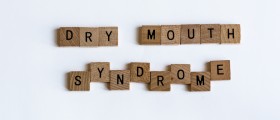
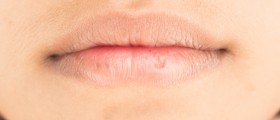


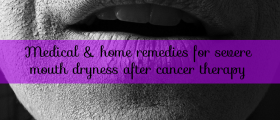



_f_280x120.jpg)
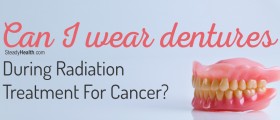
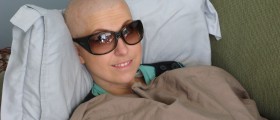
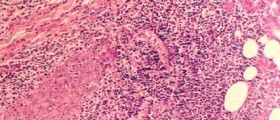
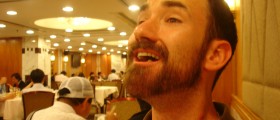
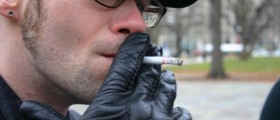
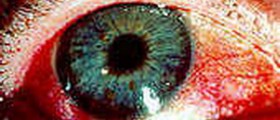
Your thoughts on this
Loading...